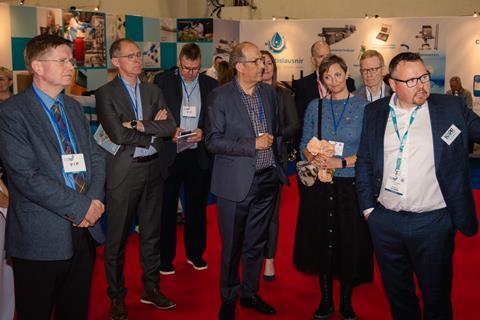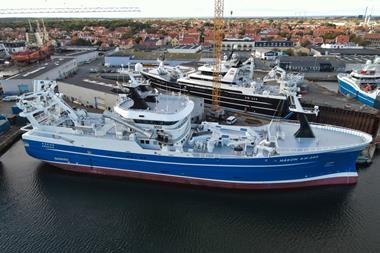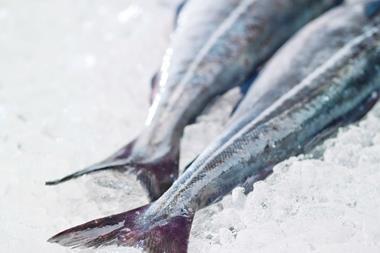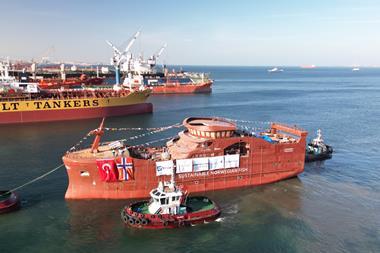With the 14th Icelandic Fisheries, Seafood & Aqua Exhibition drawing ever closer, many of the event’s international visitors are finalising their travel plans to make the most of their time in Reykjavík. Among these this year will be a trade delegation from northern Canada, with visiting representatives from five of the seven member-companies of the Inuit Development Corporation Association (IDCA).
These five companies (Qikiqtaaluk Corporation, Sakku Investments Corporation, Makivvik, the Nunatsiavut Group of Companies, and Nunasi Corporation) serve as regional holding corporations that own and manage investments across a range of sectors relevant to northern Canada’s economy, including the construction, transportation, defence and fisheries sectors. Collectively, IDCA’s member companies are mandated to advance the economic well-being of Inuit across Inuit Nunangat (the Inuit homeland in Canada) through business developments that align with Inuit societal values, and which leverage local knowledge, experience and resources.
In addition to the five IDCA-member companies, representatives from three Inuit-owned energy companies will also join the delegation.
Hlynur Guðjónsson, Ambassador of Iceland to Canada, told IceFish: “What we see from Iceland’s perspective is a growing interest in greater control of fisheries resources by indigenous groups and communities across Canada’s north. Included there is a real interest in fisheries research and data collection with a view to ensuring the sustainability of undersea resources and identifying new species for local consumption and commercial markets.”
Guðjónsson added: “We also perceive growth in interest in the full utilisation of fisheries resources – as we practice in Iceland – although it has to be said that this has been the approach practiced by Canada’s indigenous peoples since time immemorial. Finally, on a commercial level we are experiencing growing investments in new processing equipment and vessel modernisation, as well as an openness to working with new partners outside of Canada, for example, in financing and sales and marketing.”
Taking inspiration
According to IDCA, the sectoral focus of its September visit – fisheries, energy and tourism – are business areas in which Icelandic companies and organisations have developed “impressive capabilities and market presence” over recent decades. It also recognises that as a small sovereign Arctic nation, Iceland has had little recourse but to develop its own businesses in these areas in order to prosper in the modern world.
Despite considerable demographic and geographic constraints, what Iceland has managed to accomplish economically is extremely impressive and it’s a source of inspiration for business and communities across Canada’s north, IDCA said.
The association added that in many respects, its members face similar business development challenges in their efforts to help their respective regions become more economically self-sufficient and diversified.
Given these converging factors, those member believe there’s much to learn from Iceland’s story, it said.
With regards to opportunities, IDCA explained that many of the key business sectors that Iceland excels in are also familiar and important to northern Canada. As such, delegates on the September visit hope to learn more about Iceland’s market-leading innovations in these sectors. For example, in fisheries, IDCA member are interested in identifying new ways to maximise the value of this critical resource, such as through the novel processing of fish waste into value-added products.
Meanwhile, in the energy sector, delegates hope to learn about technologies that can help northern Canada produce more sustainable and affordable energy for communities and business. This is particularly critical given the high cost of energy and the need to decarbonise northern Canada’s energy systems, IDCA said.
It also notes that Iceland has developed “northern solutions to northern problems” and so IDCA delegates want to engage in productive conversations with Icelandic stakeholders about these issues, while also contributing their own experiences and ideas to the upcoming discussions.
“We see this trip as an opportunity to take our relationship with Canadian North and Atlantic Canada the next level, with IDCA, to the mutual benefit of Inuit-owned development corporations and Icelandic companies. This would see the trip spurring greater cooperation between Icelandic and Inuit-owned entities in the following areas: technology, financial services, scientific research, fisheries management, and sales/marketing/supply chain integration,” Guðjónsson said.
“We also see much potential for sharing of expertise around the 100% Fish model. While the modern version of this approach has been championed by Icelandic companies, especially in the biotech and manufacturing spaces, Icelanders likely have much to learn from Indigenous ways of making the most of every animal harvested from the ocean or off the land. So overall, we see this IDCA visit to Iceland as only the beginning of a much deeper and wider north-to-north relationship.”
Reinforcing relations
The ambassador also highlighted the strong ties that already exist between Iceland and Canada. As well as the formal diplomatic relations that have existed for nearly 80 years, 2025 will mark the 150-year anniversary of Icelandic immigration to Canada. Canada also hosts the largest Icelandic diaspora outside of Iceland and through the Canada-EFTA Free Trade Agreement, it has enjoyed a nearly tariff-free trade in goods since 2009.
For the past three years, the focus in Canada has been on North-to-North dialogue and partnerships, and “trying to break the North-to-South norm” to create new opportunities for the country’s businesses in Iceland in Canada, he said.
Currently, seafood products represent the largest export sector from Iceland to Canada. But cooperation in this sector runs much deeper than just seafood products, encompassing machinery, financing, research, investments, finance, and vessels and vessel maintenance. For instance, Qikiqtaaluk Fisheries’ freezer trawler Saputi completed a major refit at Slippurinn Akureyri earlier this year.
“Moreover, Icelandic companies have an interest in sales and marketing of seafood products from Canada, for example, into Europe, Scandinavia and Asian markets where the Icelandic companies have deep and longstanding relationships,” Guðjónsson said.
“Furthermore, we know that industry stakeholders in Atlantic Canada are looking at Iceland as a model when it comes to process automation and seafood by-product valorisation and re-utilisation. The Icelandic banks have serviced the Canadian markets for decades and the market has renewed its interested in partnership with the Icelandic banks and other financial firms. So, we are excited about the potential for deeper cooperation between Iceland and Canada, including its northern territories, which is what this IDCA delegation’s trip to Reykjavík is all about,” he said.









